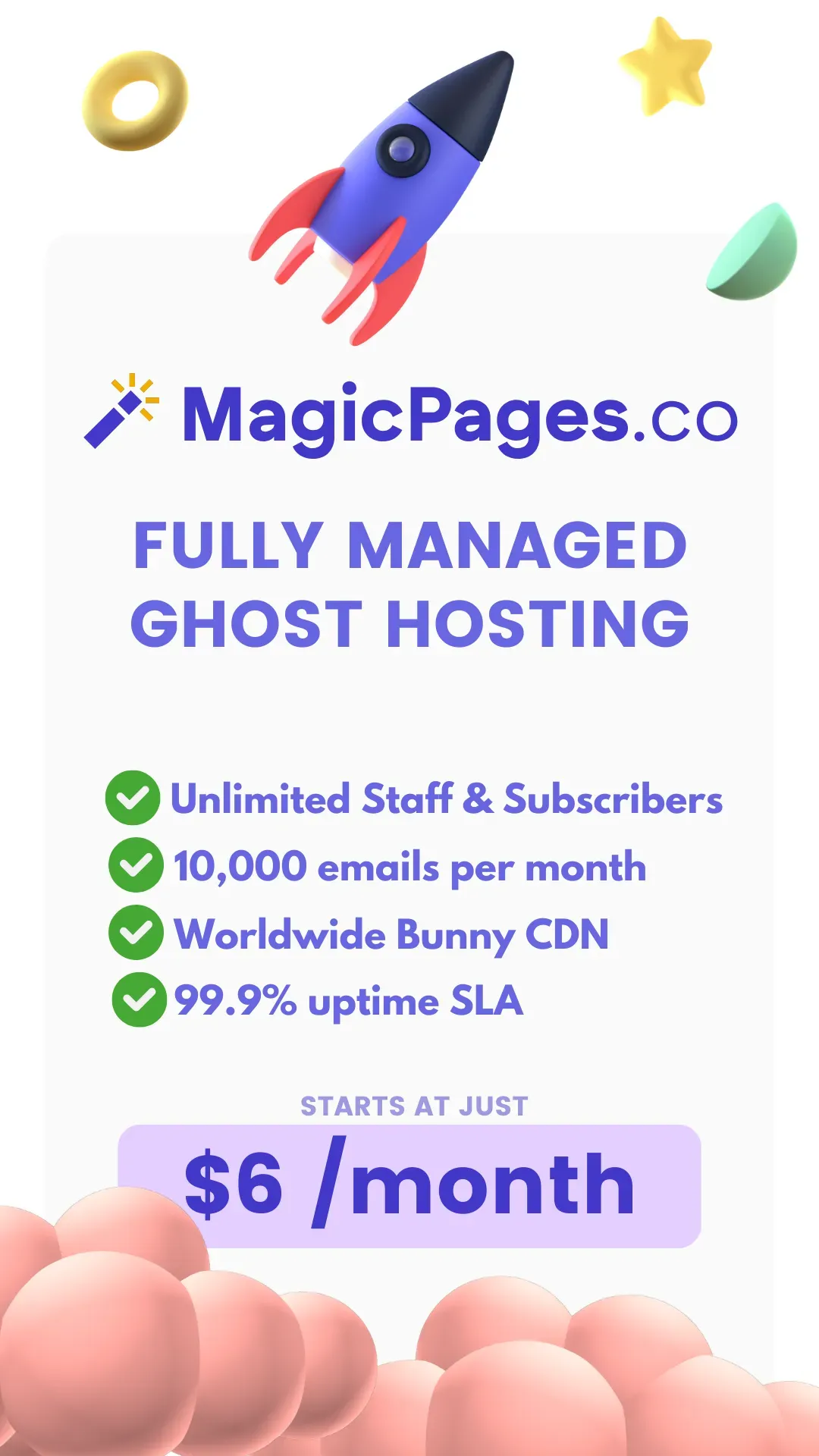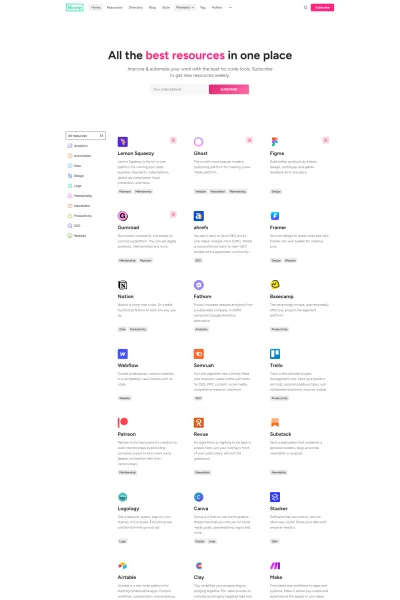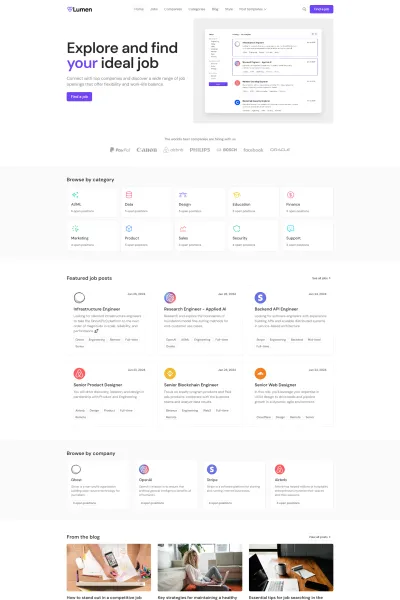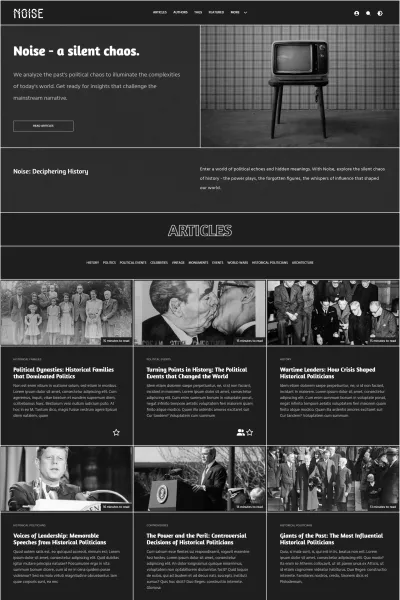This article offers a detailed analysis of selecting a Content Management System (CMS) that aligns with specific business objectives. It emphasizes the importance of understanding the primary purpose of your website—such as blogging, e-commerce, or portfolio presentation—to ensure the chosen CMS supports your goals. The article discusses assessing team roles and permissions, highlighting platforms like Drupal for complex permission structures. It also considers the technical expertise of your team, suggesting user-friendly options like Webflow or WordPress for non-technical users and more robust solutions like Ghost for technically proficient teams. Scalability is addressed by comparing WordPress, which may require extensive optimization under high traffic, to Ghost, known for its high performance and modern tech stack. The article positions Ghost CMS as a standout choice for modern content creators, citing its built-in SEO tools, clean interface, and efficient content creation capabilities.
Introduction
Selecting the appropriate Content Management System (CMS) for your website is a crucial choice that can impact your site's functionality, scalability, and overall success.
With numerous options available in 2025, it can be challenging to determine which CMS will best meet your specific needs. This guide delves into the essential factors and highlights why Ghost CMS is a standout choice for modern content creators.
Understanding Your Business Needs
Choosing the appropriate CMS starts with a clear understanding of your business objectives. This initial step is essential as it establishes the framework for aligning the capabilities of the CMS with your strategic goals.
For instance, a business prioritizing content creation might focus on features like streamlined workflows and SEO tools, while an e-commerce platform would need robust inventory management and payment integrations.
By clearly defining objectives such as audience engagement, scalability, or monetization, you can narrow down CMS options that align with your long-term vision. Understanding these goals ensures efficient operations and helps optimize costs and resources, making the CMS a sustainable choice for the future. Start by answering these key questions:
1. What is the primary purpose of your website?
Are you focusing on blogging, e-commerce, portfolio presentation, or a mix of services? For instance, if your goal is to create a content-driven blog, platforms like Ghost CMS, which emphasizes streamlined publishing, are ideal.
For e-commerce, a CMS like Shopify may offer the best integrations with payment systems and inventory management.
Conversely, portfolio websites can use a design-focused CMS such as Squarespace, which emphasizes visual customization.
Considering these distinct needs ensures that your chosen CMS aligns with your objectives and functionality requirements.
2. What roles and permissions will your team require?
Evaluate if your CMS provides advanced workflow functions beyond fundamental roles such as editors, administrators, and contributors.
Platforms like Drupal offer detailed permission structures, making them ideal for large organizations with intricate requirements.
Furthermore, seek CMS features that facilitate multi-tier approvals, content scheduling, and version tracking to ensure seamless collaboration and effective content governance among teams.
3. What level of technical expertise does your team have?
If your team lacks technical skills, a CMS with intuitive interfaces and drag-and-drop builders, such as Webflow or WordPress, might be ideal. These platforms provide flexibility through numerous plugins and design tools, making them accessible to non-technical users.
Conversely, teams with technical expertise can opt for a robust and bespoke solution using Ghost, which offers high performance and an API-driven architecture tailored to developers.
4. How will your CMS support scalability?
Consider whether the CMS can handle future growth, including increased traffic and expanding content libraries.
WordPress, while popular, is known to be a bulky CMS that tends to slow down under high traffic without significant optimizations. It often requires extensive configuration and numerous plugins to achieve acceptable performance levels.
In contrast, Ghost is used by many high-traffic websites due to its modern tech stack and native speed. Built on Node.js, Ghost delivers excellent performance, even with minimal resources—achieving great results on a $5 virtual CPU. Additionally, Ghost features built-in caching mechanisms that enhance response times, making it an ideal choice for scalability and efficiency.
5. Does your audience require multilingual support?
If your business aims to reach a global audience, ensure the CMS provides seamless support for multiple languages.
Platforms such as WordPress and Drupal come with multilingual features, whereas Ghost’s integrations facilitate translation workflows.
A few themes, like Crimson, support a "true multilingual experience" on Ghost.
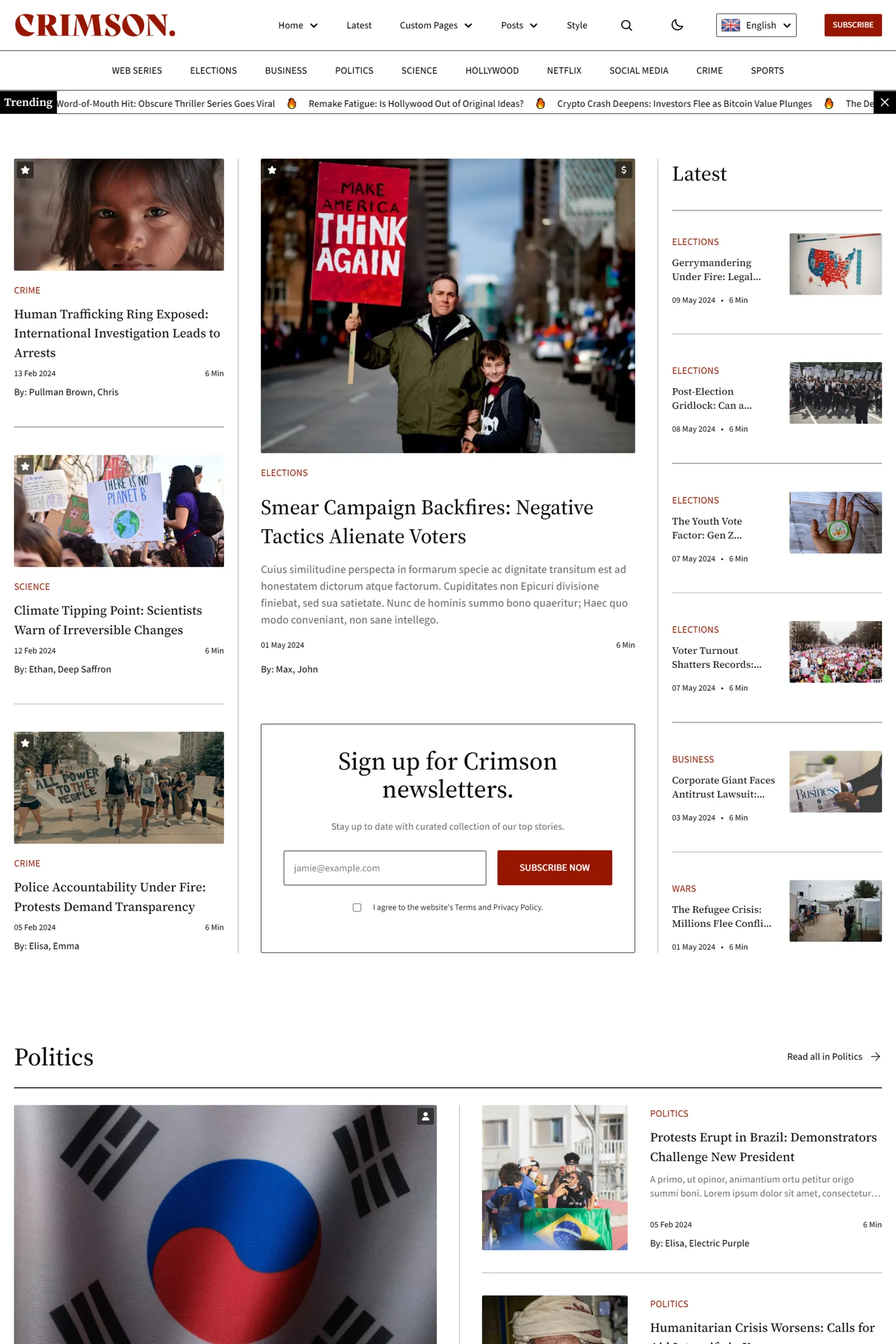
Crimson - A true multilingual Ghost theme
6. Do you need specific integrations or custom features?
Evaluate whether the CMS can connect with essential tools such as CRMs, e-commerce platforms, or marketing software. Ghost’s API-driven architecture makes it flexible for custom integrations.
Ghost also provides numerous integrations with third-party tools. Thus, you can connect your Ghost website with the most widely used external tools.
Autonomy and Ease of Use
Ease of use is crucial, especially for teams with limited technical expertise or those looking to minimize development time. Choosing a CMS with an intuitive interface can significantly reduce the learning curve, allowing teams to focus on content creation rather than troubleshooting technical complexities.
Webflow and WordPress provide user-friendly drag-and-drop builders that simplify website design and management without requiring coding skills. Additionally, they are supported by vast libraries of plugins and templates, offering extensive flexibility and customization to suit diverse needs.
For technically skilled teams, Ghost provides a robust, developer-friendly platform. Its API-driven architecture and strong built-in features allow seamless customization and integration. This flexibility enables teams to create tailored solutions that meet their needs while ensuring high performance and efficiency.
Love what you read?
Get exclusive Ghost updates & new theme drops in your inbox!
User-Friendly Interfaces
A clean, intuitive interface can empower non-technical users to manage content without constant developer intervention.
For example, Ghost CMS offers a distraction-free, minimalistic dashboard, while WordPress provides extensive customization options through plugins. The right interface depends on your team's familiarity with the specific requirements.
Content Editing Tools
Robust editing tools are essential for a seamless content creation process. Look for features like WYSIWYG editors that allow users to format text without coding, drag-and-drop functionality for easy layout adjustments, and real-time preview options to see changes instantly. Platforms like Webflow excel in design flexibility, while Ghost’s editor is streamlined for writers.
Onboarding and Training
A CMS should include resources or guides to help new users get up to speed quickly. Systems like Squarespace offer video tutorials, while others like Drupal have extensive community-driven documentation. These resources reduce the learning curve and empower users to utilize the platform effectively.
Ghost provides extensive documentation to get started.
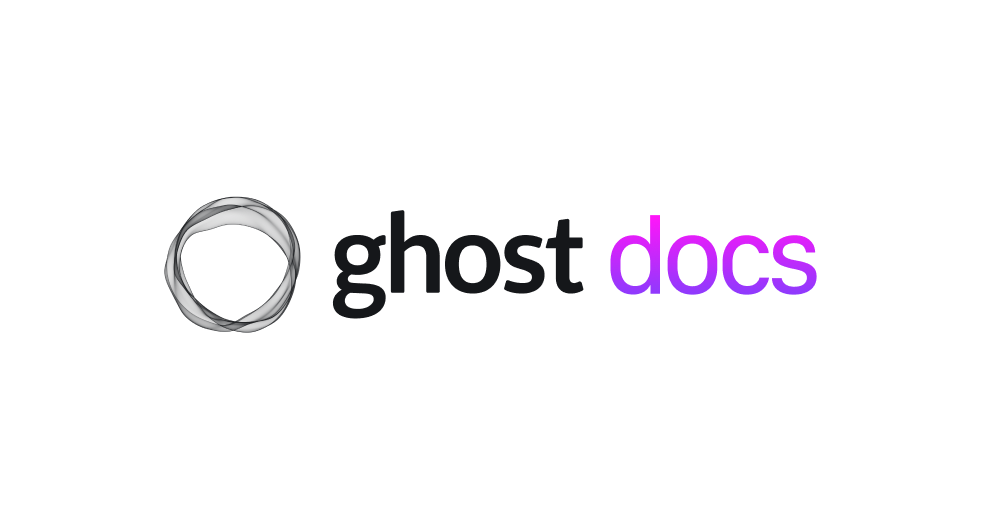
Ghost Documentation
Accessibility Features
Ensure the CMS adheres to web accessibility standards (like WCAG) to create inclusive user experiences. Platforms like Wix incorporate accessibility best practices, making it easier to build compliant sites.
While Ghost's accessibility highly depends on the theme you are using. So, it becomes imperative to choose a high-quality theme. Check out Ghost themes at:

Largest collection of FREE and PREMIUM Ghost themes
A CMS that prioritizes autonomy enables faster workflows and minimizes bottlenecks.
Cost Considerations
Budget constraints often play a significant role in CMS selection, as the financial implications extend beyond the initial investment. It is essential to evaluate the total cost of ownership (TCO), including upfront licensing fees and hidden expenses such as hosting, maintenance, and upgrades.
Some CMS platforms, like WordPress, may appear cost-effective at first glance due to their open-source nature. Still, the need for premium plugins, extensive configurations, and hosting can significantly inflate costs over time.
On the other hand, Ghost provides a simplified pricing model that incorporates essential features, decreases dependence on external tools, and lowers ongoing costs.
Additionally, consider the ROI that the CMS can deliver through improved efficiency, better audience engagement, and scalability. Carefully analyzing these factors ensures that your CMS aligns with your budget and strategic goals.
Initial Costs
Licensing fees and implementation expenses can vary significantly between CMS platforms.
For instance, open-source solutions like WordPress may appear free initially but often require hosting premium plugins and customization costs.
Proprietary platforms like Shopify include fixed subscription fees that simplify budgeting but may increase with additional features.
Ghost CMS provides a managed hosting service called Ghost(Pro). Alternatively, you can self-host your Ghost, which can help lower your monthly hosting expenses.
Apart from hosting, you might consider buying a premium theme. However, that applies to most CMS solutions, so the cost will remain similar for different CMS.
Ongoing Costs
Maintenance and updates are crucial for keeping your CMS secure and efficient. Platforms like Ghost CMS provide regular updates with minimal intervention, whereas systems like Joomla may require more hands-on management.
Consider additional costs like hosting upgrades and premium add-ons that might be necessary as your website grows.
Return on Investment (ROI)
Evaluating the ROI of a CMS involves examining how it contributes to your revenue goals.
For example, Magento, designed for e-commerce, can drive sales with its integrated marketing features.
Similarly, Ghost CMS boosts productivity for content-focused businesses by simplifying the publishing process, thereby increasing operational efficiency and profitability.
Balancing affordability with functionality ensures you invest wisely.
Scalability and Flexibility
Your CMS should grow with your business, adapting seamlessly to your evolving needs and expanding demands. A scalable CMS ensures that as your business traffic increases, content libraries expand, or team sizes grow, the platform can keep up without compromising performance.
Key aspects to evaluate include its ability to manage high traffic volumes effectively, integrate advanced features as needed, and provide the flexibility to accommodate new business models or user experiences.
Scalability is not just about technical infrastructure but also about ensuring long-term operational efficiency and cost-effectiveness as your business evolves.
Growth Potential
As your business grows, your CMS should be able to keep pace with increasing demands. This includes handling higher website traffic, managing a more extensive content library, and accommodating additional team members.
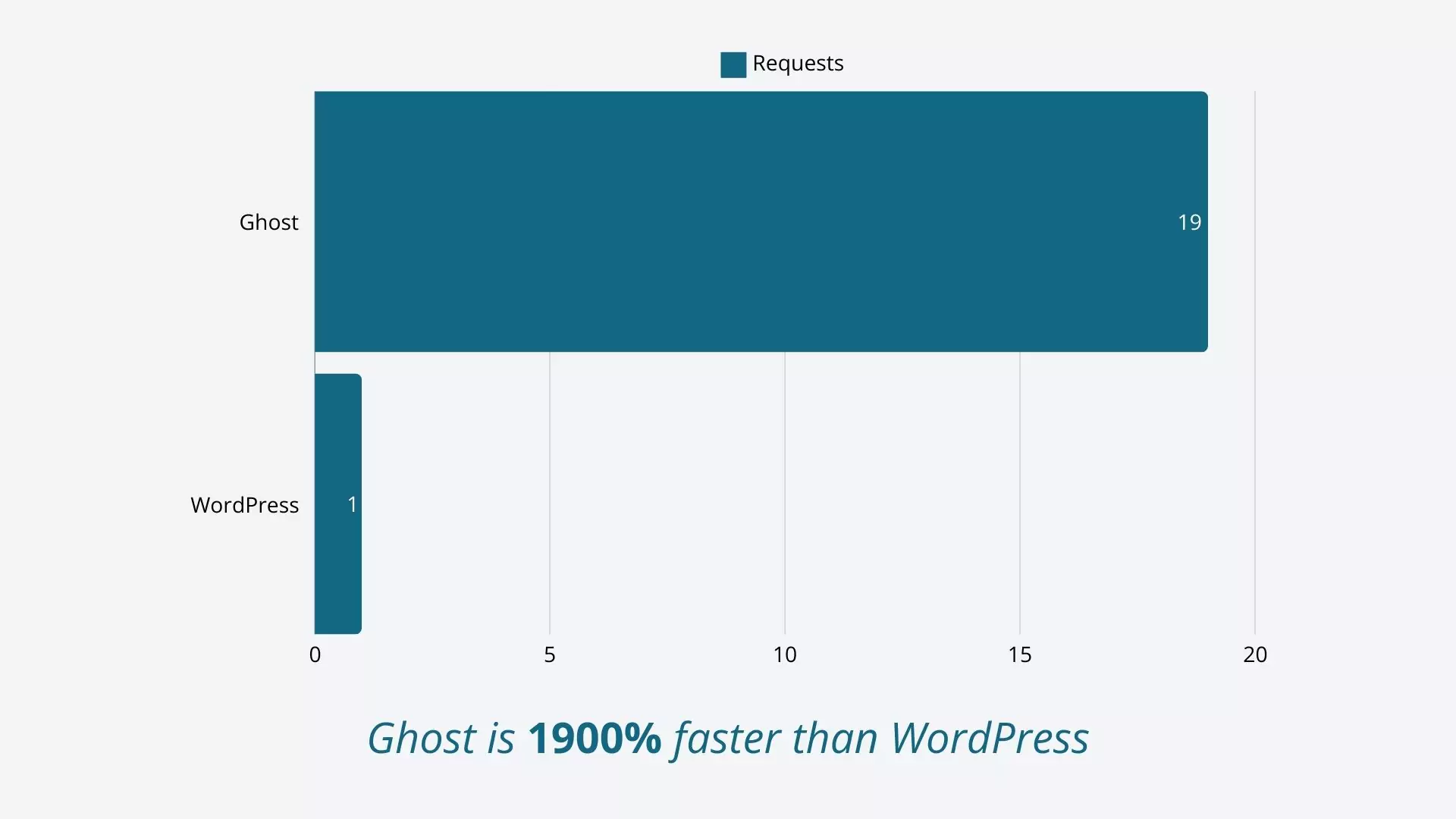
For example, enterprise-grade platforms like Adobe Experience Manager are designed to scale effortlessly with large organizations.
At the same time, Ghost CMS provides efficient content management for mid-sized businesses with growing needs.
Customization
Flexibility is key to adapting your website to unique business requirements. A customizable CMS allows for tailored solutions that can evolve with your objectives.
Open-source platforms like WordPress and Drupal enable developers to create bespoke features through custom plugins and themes.
Ghost CMS features a contemporary API-driven architecture that enables effortless integration with various tools and offers customization options to improve functionality.
Ghost CMS is regarded as less flexible because it prioritizes writing over offering various features that many creators might never utilize during their publishing careers.
Future-Proofing Your CMS
When evaluating scalability and flexibility, consider future-proofing your investment.
This involves assessing whether the CMS is actively maintained, supports modern technologies, and can adapt to upcoming trends like headless CMS capabilities.
Platforms such as Contentful, using an API-first approach, deliver forward-thinking solutions, whereas Ghost’s regular updates keep it at the forefront of tools for content creators.
Scalability is crucial for businesses anticipating significant growth.
Integration Capabilities
Modern websites rely on numerous third-party tools to optimize workflows, enhance user experience, and drive business results. A CMS should facilitate seamless integrations with these tools to ensure streamlined operations.
For instance, marketing automation platforms like Mailchimp and HubSpot can synchronize campaigns directly with website interactions, enabling efficient lead nurturing.
Analytics platforms like Google Analytics or Matomo provide actionable insights by tracking user behavior and website performance.
Additionally, e-commerce platforms like Shopify or Stripe can be integrated to manage transactions and inventory effortlessly.
Advanced CMS platforms like Ghost also support API-driven integrations, which allow custom connections to unique third-party tools and enhance flexibility and scalability.
By choosing a CMS with strong integration capabilities, businesses can ensure a cohesive digital ecosystem that supports growth and innovation.
Marketing Platforms
Modern CMS platforms should integrate seamlessly with leading marketing tools. For instance, platforms like Mailchimp and HubSpot enable users to launch email campaigns directly connected to website interactions.
These integrations ensure that marketing efforts are streamlined and data-driven, providing actionable insights to improve customer engagement.
Ghost CMS includes seamless newsletter support, enabling you to efficiently send blog posts as emails to your subscribers. It's really that straightforward. There’s no need for third-party tools or extra workflows.
Analytics Services
Data analysis is crucial for understanding user behavior and optimizing website performance. Integrations with tools like Google Analytics allow website owners to track metrics such as traffic sources, bounce rates, and conversion rates.
Advanced CMS platforms like WordPress also support plugins that extend analytics capabilities, enabling businesses to make informed decisions.
Ghost welcomes you with a stunning dashboard that displays your analytics. You can easily view your members and their engagement percentages. Additionally, you can track the origins of your members.
E-Commerce Integrations
For businesses prioritizing online sales, e-commerce capability is crucial. A CMS must facilitate smooth integration with payment platforms like Stripe or PayPal and efficiently manage inventory.
Shopify stands out with its specialized e-commerce features, whereas Ghost supports membership-based monetization and subscription models, making it ideal for content creators.
Love what you read?
Get exclusive Ghost updates & new theme drops in your inbox!
Security Features
Security is non-negotiable in today’s digital landscape, where cyber threats and data breaches are increasingly common. A robust CMS should offer comprehensive security measures, including encryption protocols, regular updates, and proactive monitoring to safeguard your data and user information.
Beyond basic features like SSL support and secure password protocols, platforms like Ghost CMS offer built-in HTTPS functionality and streamlined architectures that reduce vulnerability. Additionally, configuring and maintaining compliance with regulations such as GDPR or HIPAA is essential for businesses handling sensitive data.
A secure CMS protects against breaches and builds trust with your audience, ensuring a safe and reliable user experience.
Data Protection
Robust data protection features are essential to safeguard sensitive information on your website. Features such as SSL support ensure encrypted communication between the server and users, enhancing security and trust.
Platforms like Ghost CMS offer built-in HTTPS support, crucial for secure browsing and improved SEO rankings. Additionally, data encryption capabilities protect stored information from potential breaches.
Compliance Standards
Adherence to regulatory standards like GDPR (General Data Protection Regulation) or HIPAA (Health Insurance Portability and Accountability Act) is critical to choosing a CMS.
Businesses that manage sensitive user data must comply with these regulations to stay legally compliant and foster customer trust. Platforms such as Drupal and Ghost offer tools for configuring and maintaining compliance, including customizable cookie banners and privacy settings. Noncompliance can lead to significant penalties, so aligning with regulations is essential.
Performance and Stability
A high-performing website retains users, enhances engagement, and improves search engine rankings, making it a cornerstone of digital success. Ensuring optimal performance requires careful consideration of multiple factors, including speed, stability, and scalability.
Fast-loading pages reduce bounce rates and create a positive user experience, directly contributing to better SEO rankings. Furthermore, reliable uptime ensures users can access your site anytime, building trust and reducing the risk of revenue loss due to outages.
Selecting a CMS like Ghost, known for its performance-oriented architecture and built-in optimization tools, can significantly enhance your website's ability to meet these demands. Additionally, leveraging scalable hosting solutions ensures your website remains responsive even during traffic surges, solidifying its position as a high-performing platform.
Loading Speeds
The speed at which your website loads is critical for both user experience and search engine rankings. A fast-loading website reduces bounce rates and ensures visitors remain engaged.
CMS platforms like Ghost, built on Node.js, are designed for speed and efficiency, making them an excellent choice for performance-driven sites. Similarly, Contentful and Webflow offer optimization tools that ensure images, scripts, and other assets are delivered swiftly to users, regardless of their device or location.
Reliability
Website uptime is essential for maintaining trust with your audience and avoiding revenue loss. A reliable CMS ensures your site remains accessible 24/7.
When paired with managed hosting providers like WP Engine, platforms like WordPress deliver robust reliability through high-availability infrastructure. Similarly, enterprise solutions like Adobe Experience Manager boast superior uptime guarantees, making them suitable for mission-critical applications.
Ghost(Pro) guarantees a 99.9% uptime for business plans. You need to ensure your site is up, if you are using a self-hosted solution.
Caching Mechanisms
An advanced caching system can significantly improve loading speeds and reliability. Look for CMS platforms that offer built-in caching or seamless integration with third-party caching tools.
For example, Ghost CMS provides efficient server-side caching, while WordPress can utilize plugins like WP Super Cache to enhance performance.
Server Scalability
A CMS should also support scalable hosting environments to handle traffic surges during peak times. Cloud-based hosting solutions integrated with platforms like Ghost or Shopify ensure your website remains stable and responsive, even under heavy loads.
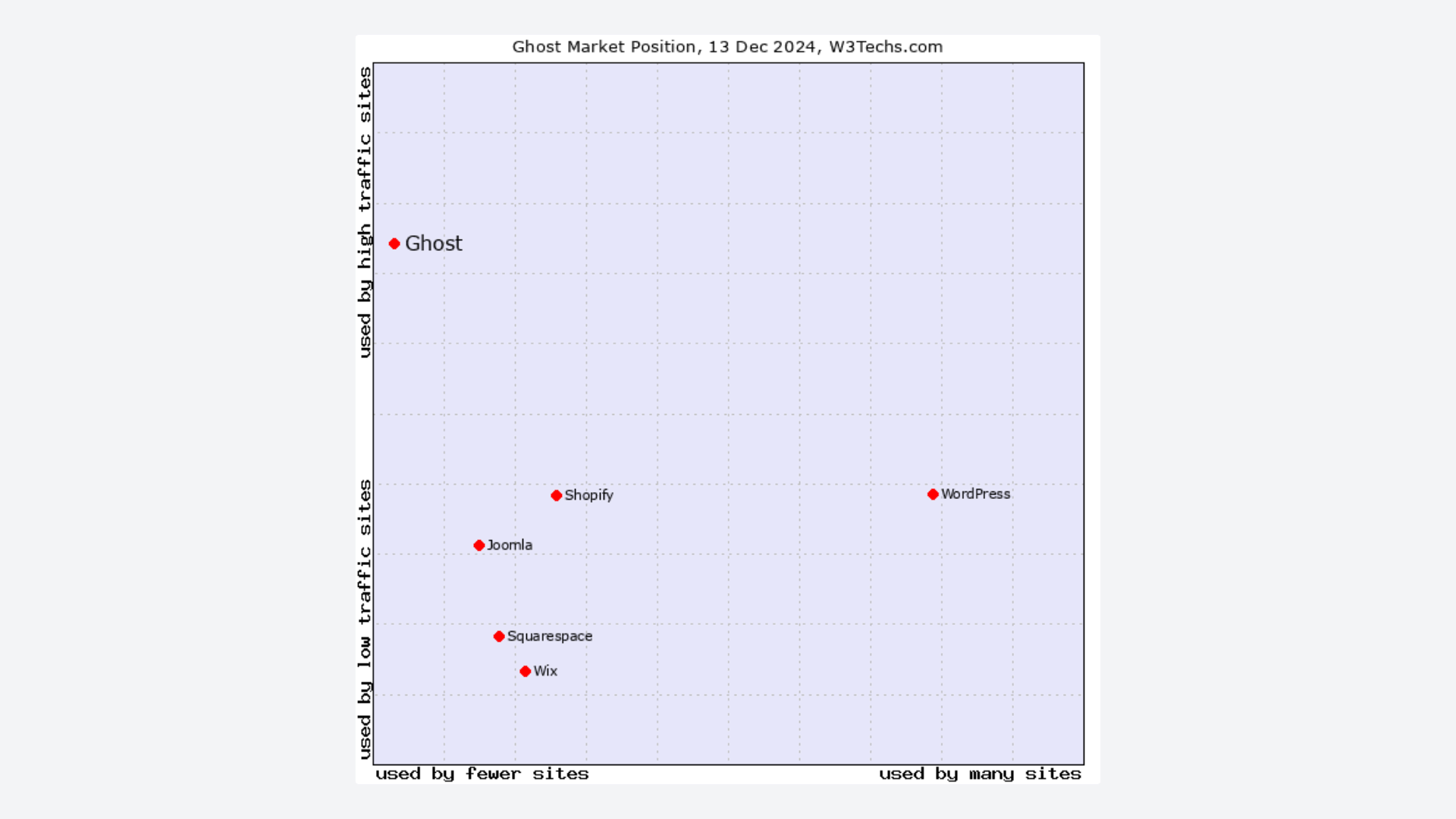
Ghost is used by many high-traffic websites. In fact, it outperforms all other CMS solutions in terms of scalability.
Community and Support
To maximize your CMS, a strong support system is crucial. This includes responsive customer service for technical issues, comprehensive documentation for user assistance, and an active community for collaboration. Such resources ensure smooth operations for daily tasks and complex challenges.
A CMS like Ghost provides professional support tiers with dedicated assistance and a robust user forum for peer-to-peer help, enabling users to fully leverage the platform’s capabilities.
Evaluate these aspects to ensure your CMS effectively meets your operational needs.
Vendor Support
Robust vendor support is a critical aspect of any CMS. A reliable support system provides access to customer service representatives who can resolve technical issues promptly.
Comprehensive documentation ensures that users can troubleshoot common problems and learn how to utilize advanced features.
Platforms like Ghost CMS offer professional support tiers with dedicated assistance. Ghost also has a strong community-driven forum where you can get help from fellow Ghost users and developers.
A dependable vendor support system minimizes downtime and ensures a smooth user experience.
Community Resources
An active and engaged community adds significant value to a CMS. Forums, tutorials, and user groups are platforms for knowledge sharing and collaborative problem-solving.
Open-source platforms such as WordPress and Ghost thrive due to active communities that offer plugins, themes, and troubleshooting help. For example, Ghost’s community forum supplies valuable resources for developers and content creators, helping them fully utilize the platform’s features.

Ghost Forum
Third-Party Expertise
Beyond vendor and community support, many CMS platforms have a network of certified partners or agencies specializing in implementation and customization. These third-party experts provide tailored solutions to meet unique business needs.
For example, WordPress has a vast ecosystem of developers and agencies that can build custom themes or plugins. At the same time, Ghost’s API-focused approach enables third-party developers to create bespoke integrations and applications.

Hire Ghost Experts
Knowledge Base and Self-Help Resources
Many CMS platforms maintain extensive knowledge bases or self-help portals. These repositories include FAQs, video tutorials, and step-by-step guides to empower users to resolve issues independently.
Platforms like Squarespace and Wix excel in providing user-friendly help centers that cater to non-technical users, while more developer-focused platforms like Drupal offer in-depth technical documentation.
Ghost has extensive documentation and "Getting Started" guides for self-help.

Ghost Docs
An active support ecosystem simplifies troubleshooting and feature adoption, ensuring users can fully leverage the CMS’s capabilities.
SEO and Marketing Tools
Effective content promotion relies on robust SEO and marketing capabilities to drive visibility, engagement, and growth. A CMS should offer tools and features that make optimizing your website for search engines easy while providing seamless integration with marketing platforms.
Choosing a CMS with strong SEO features ensures your content reaches the right audience. Additionally, sophisticated marketing integrations enable the smooth optimization of promotional campaigns. These capabilities improve your website's performance and strengthen its ability to engage and retain users, making them essential for any modern CMS.
Built-In SEO Tools
Search engine optimization is a cornerstone of online success. A CMS with robust built-in SEO tools can simplify and automate many optimization aspects.
Features like meta tag customization allow you to define how your pages appear in search results. Clean URL structures ensure better readability for search engines and users alike.
Platforms like Ghost and WordPress provide these features directly, whereas others depend on third-party plugins for additional capabilities.
Moreover, generating an XML sitemap allows search engines to efficiently crawl and index the structure of your website.
Marketing Integrations
In today’s digital-first world, a CMS should support seamless integration with marketing tools. Compatibility with platforms like Mailchimp, HubSpot, and Google Ads can centralize your email marketing, social campaigns, and advertising efforts.
For example, CMS platforms like Wix have built-in social media scheduling tools, whereas Ghost has a distinctive newsletter feature, allowing direct audience engagement. Additionally, you can enhance Ghost's capabilities by linking it with more third-party tools.

Ghost Integrations
Content Optimization Features
Many CMS platforms now include tools to optimize content for readability and search intent. Yoast SEO for WordPress provides real-time feedback on content structure, keyword usage, and readability.
Ghost CMS creates a clean and distraction-free writing environment, enabling authors to focus on high-quality, engaging content. These features ensure that your content performs well for readers and search engines.
Performance Monitoring
SEO is not just about keywords; performance also plays a critical role. Fast-loading pages and mobile responsiveness directly influence search rankings.
CMS platforms like Ghost, built on lightweight frameworks like Node.js, are designed to prioritize speed and user experience.
A CMS optimized for SEO ensures better visibility and traffic growth.
Mobile Responsiveness
With most web traffic now originating from mobile devices, your CMS must prioritize mobile compatibility to stay relevant. Beyond just design, the CMS should enable efficient mobile content management, allowing users to update and maintain their sites directly from mobile devices.
Additionally, advanced features like mobile performance optimization and Progressive Web App (PWA) support can enhance user experience, ensuring faster load times and offline functionality.
By addressing these mobile-first considerations, your CMS can cater to modern audience behaviors and expectations, boosting engagement and SEO rankings.
Responsive Design
Mobile-friendly templates and layouts are essential for delivering a seamless user experience across various devices. As most web traffic now originates from smartphones and tablets, a CMS must offer responsive design options.
Platforms like Ghost and Squarespace provide pre-designed themes optimized for mobile use, ensuring consistency in appearance and functionality regardless of the device. This approach enhances user satisfaction and boosts SEO rankings, as search engines prioritize mobile-friendly sites.

Largest collection of Ghost themes
Mobile Editing
The ability to manage and publish content on the go is a game-changer for modern website administrators and content creators. CMS platforms like WordPress and Wix include mobile apps or browser-compatible dashboards that allow users to edit, upload content, and even track site analytics from their smartphones.
Ghost CMS, for instance, focuses on a clean and efficient mobile interface, enabling users to write, edit, and publish posts effortlessly while on the move. While there isn't a native mobile app for managing your Ghost website, its admin dashboard is entirely responsive, allowing you to manage it easily through any browser on your phone or tablet.
Mobile Performance Optimization
Mobile performance encompasses more than just responsive design and editing features. It includes optimizing images, scripts, and various assets to achieve quicker load times on mobile devices.
CMS platforms like Webflow and Ghost enhance performance by employing lightweight coding and efficient content delivery networks (CDNs) to boost speed.
Additionally, integrating tools for mobile-specific analytics helps website owners identify and address performance bottlenecks unique to mobile users.
Progressive Web App (PWA) Support
For businesses looking to provide app-like experiences without creating native applications, PWA support in a CMS is crucial. PWAs boost user engagement by offering faster loading times, offline capabilities, and push notifications.
CMS platforms like Ghost and WordPress can integrate with third-party tools to enable PWA functionality, further improving mobile accessibility and user retention.
Many themes provide PWA support out of the box like Dashi Ghost theme.
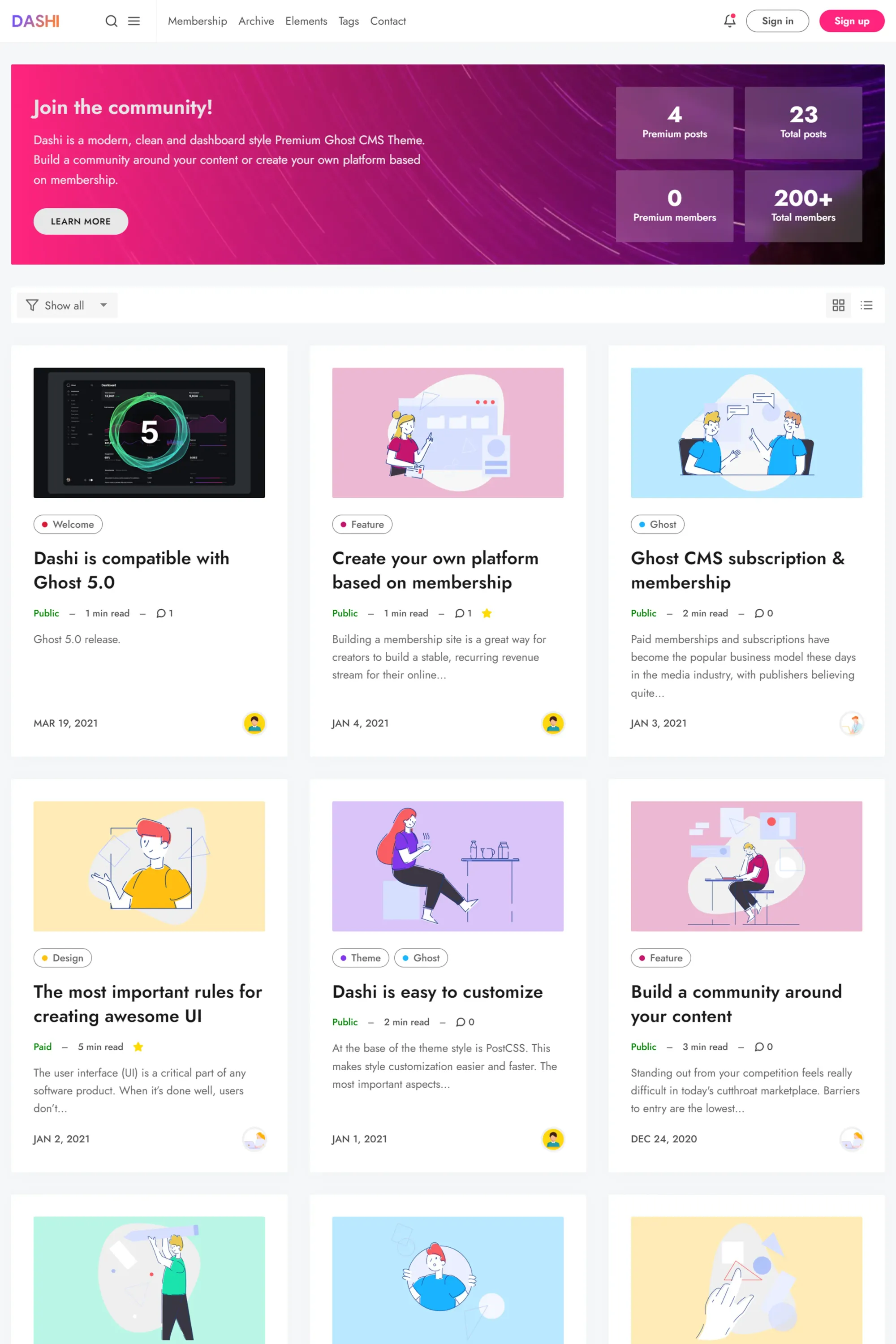
PWA supported Dashi Ghost theme
Analytics and Reporting
Data-driven decisions are vital for website success, as they provide actionable insights that inform strategy and optimize performance. Leveraging analytics allows businesses to understand their audience, track the effectiveness of content, and measure key performance indicators (KPIs) such as engagement, conversions, and traffic patterns.
This information can guide decision-making processes, ensuring that every adjustment or new strategy is backed by solid evidence. By integrating robust analytics tools into your CMS, you can continuously refine your approach, adapt to audience preferences, and drive sustainable growth.
Built-In Analytics
Performance tracking is essential for any CMS, allowing website owners to monitor metrics such as page views, visitor demographics, and traffic sources.
Platforms like Ghost CMS include native analytics tools that provide insights into content performance and audience behavior without requiring additional setup. This functionality is ideal for smaller teams or those looking for straightforward reporting capabilities.
Custom Reports
For businesses with more complex analytics needs, the ability to generate custom reports is invaluable.
When paired with plugins like MonsterInsights, Advanced CMS platforms like WordPress allow users to tailor analytics dashboards to track specific goals such as conversion rates, user journeys, or campaign performance.
Similarly, enterprise-grade solutions like Adobe Experience Manager provide granular reporting features, enabling deep dives into user behavior and content effectiveness.
Real-Time Data Monitoring
Real-time analytics can offer immediate feedback on campaigns or website changes, helping businesses adjust strategies quickly.
CMS platforms integrated with tools like Google Analytics or Matomo provide live dashboards that display visitor activities as they happen. This is particularly useful during promotional events or product launches, where instant insights can drive rapid decision-making.
Integration with External Tools
While built-in analytics are helpful, integrating with external tools can significantly expand capabilities.
Ghost and WordPress support seamless integration with Google Analytics, Mixpanel, and other specialized analytics tools. These integrations allow businesses to combine data from multiple sources, creating a comprehensive view of performance metrics and enabling more sophisticated analysis.

Ghost Integrations
Integration with external analytics tools can further enhance data insights.
Evaluating Ghost CMS for 2025
Ghost CMS has become a top choice for content creators, offering performance, simplicity, and scalability. Here's why Ghost stands out:
Content-Centric Design
Ghost's minimalist, distraction-free interface is specifically tailored for writers and publishers. This design philosophy ensures that creators can focus on crafting high-quality content without unnecessary distractions. The platform’s Markdown editor, live preview, and simple layout exemplify its content-first approach, making it ideal for bloggers, journalists, and newsletter creators.
Performance and Speed
Powered by Node.js, Ghost CMS excels in speed and efficiency. Its lightweight architecture minimizes load times, enhancing the overall user experience and positively impacting SEO rankings. Unlike bulkier platforms like WordPress, Ghost’s performance-oriented design ensures rapid page rendering, even for content-heavy websites.
SEO Optimization
Ghost offers strong SEO capabilities that are directly integrated into the platform, removing the need for external plugins. Its tools, such as automatic sitemap generation, customizable meta descriptions, and structured data support, enhance your content's visibility on search engines. These functionalities position Ghost as a valuable partner for creators focused on increasing organic traffic.
Customization
Ghost offers a wide range of themes and integration options, enabling users to create unique and tailored experiences. Its API-driven architecture supports seamless integration with Zapier, Stripe, and Google Analytics tools. Ghost’s headless CMS capabilities allow advanced developers to build fully custom front-end experiences while leveraging its robust back-end. You need some coding experience to customize a Ghost theme, as it lacks a drag-and-drop builder.
Security
Regular updates and robust security measures make Ghost a reliable choice for businesses. Built-in HTTPS support, minimal reliance on third-party plugins, and a streamlined codebase reduce vulnerabilities. Ghost’s proactive security updates further protect your content against emerging threats.
Community and Support
As an open-source platform, Ghost benefits from a thriving community that continuously contributes to its growth. Developers and users actively share themes, integrations, and troubleshooting tips. Ghost’s official forums and extensive documentation provide additional resources, making it easy for new users to onboard and maximize the platform’s potential.
Ghost CMS’s focus on content creation and its modern technical capabilities make it a compelling option in 2025.
Love what you read?
Get exclusive Ghost updates & new theme drops in your inbox!
Conclusion
Ghost CMS has emerged as a leading option for content creators due to its flawless integration of performance, simplicity, and scalability. Designed for modern publishers, it enables them to focus on producing high-quality content without encountering technical obstacles.
Ghost’s advanced Node.js architecture powers its performance, delivering rapid load times, even during peak traffic. Furthermore, its minimalist design enhances workflows, making it an intuitive platform for writers and publishers.

Start your publishing journey effortlessly with Ghost(Pro), the hassle-free, fully-managed hosting. Click the button below to get started!
-
0% Transaction fees
-
Custom domain
-
Fully managed service
-
Automatic weekly updates
-
Worldwide CDN
-
Enterprise-grade security
-
Threat & uptime management
-
Migration from current CMS
Includes 14-day FREE trial
Ghost is highly scalable for expanding businesses and comes with essential features like SEO optimization and caching, reducing the reliance on multiple third-party plugins. These benefits position it as a dependable, efficient, and future-ready CMS for content creators in 2025 and beyond.
Ghost offers a user-friendly interface and powerful features that cater to bloggers, journalists, and content-focused businesses while maintaining technical efficiency. By choosing Ghost, you join a community emphasizing speed, security, and scalability—three essential components for attaining digital success by 2025.
With its built-in SEO tools, modern design, and current integrations, Ghost CMS provides a robust framework for growing your audience and successfully monetizing your content. It is a dependable option for individual bloggers and businesses, consistently achieving favorable outcomes.
Ready to elevate your blogging experience? Get started with Ghost CMS today and unlock the full potential of your content creation journey. With simple onboarding and professional support, Ghost ensures a smooth and hassle-free transition.

